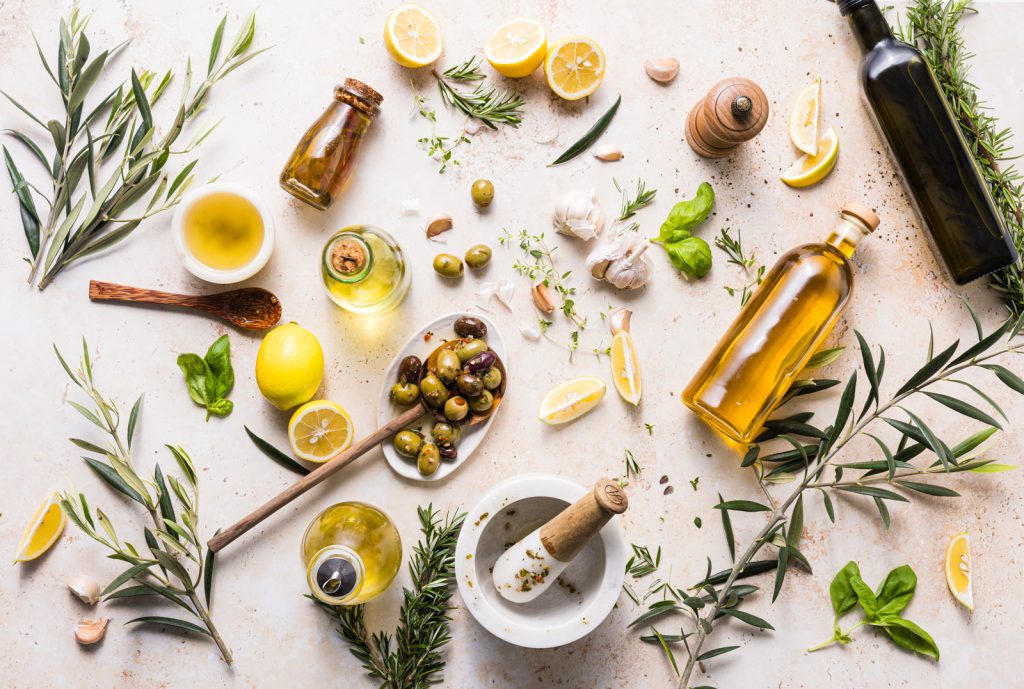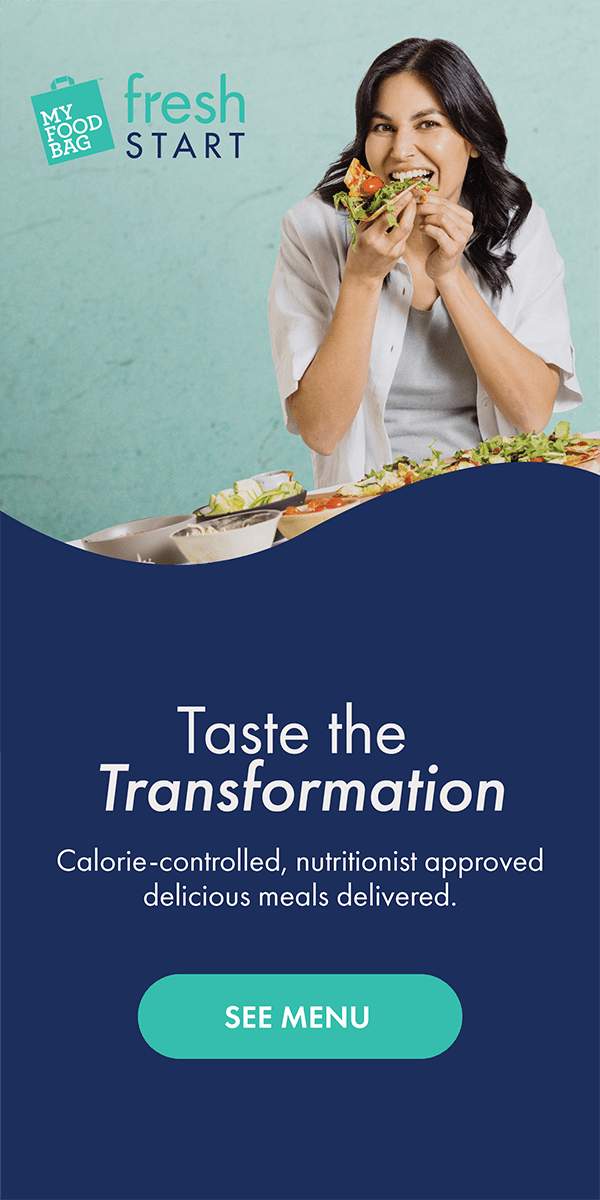There are many myths surrounding olive oil, from whether you can cook with it to how you should store it. With so much misinformation out there and our love of the Mediterranean dietary pattern, we thought it was time to set the record straight and bust the top 5 myths that we hear most often.

Olive oil in the Mediterranean diet
The Mediterranean diet is the dietary pattern of the people living in the countries surrounding the Mediterranean Sea. It has a large body of evidence surrounding the health benefits of it such as managing and preventing type 2 diabetes supporting heart health and managing weight (1-3). The main source of fat in the diet is Extra Virgin Olive Oil which may explain many of the health benefits.
The benefits of olive oil
Extra Virgin Olive oil is rich in a variety of antioxidants that are beneficial for our health. These include polyphenols, phytosterols and vitamin E which help to protect the body against free radical damage that contributes to disease and ageing (4).
Olive oil is also predominantly mono-unsaturated fat which makes it a great option for consuming in place of oils and spreads which are predominantly saturated fat such as butter, coconut oil and ghee.
Let’s bust some myths!
Myth 1: you can’t cook with olive oil.
Fact: Many people believe that when olive oil is heated it will degrade due to its lower smoke point. However, this is not the case!
Due to those polyphenols, we mentioned before, olive oil is stable when it is heated. The polyphenols work to eliminate any nasty compounds which may be produced during heating and cooking. The high level of monounsaturated fatty acids in olive oil also increases its stability (5).
Myth 2: light/lite olive oil is lower in calories.
Fact: Due to the word ‘light’ or ‘lite’ people often perceive this to be ‘lighter in calories’ but this is not true.
Light olive oil only refers to the colour, and sometimes flavour, of the oil. Therefore, choose an olive oil based on the brand you enjoy and your budget. Light olive oil won’t offer any benefit if you are wanting to reduce your calorie intake.
Light olive oil is often used as a substitute for butter in baking or dishes where a more neutral flavour is needed.
Myth 3: all types of olive oil are the same.
Fact: not all olive oils are equal.
Extra Virgin Olive Oil is the least refined type of olive oil with it being cold-pressed and therefore not subjected to any heat during processing. Extra Virgin olive oil contains the highest concentration of polyphenols compared to more refined versions of olive oils (6).
You may also see some olive oils labelled as ‘pure olive oil’ or just ‘olive oil’. These versions have undergone more processing than the other types like Extra Virgin Olive Oil and virgin olive oil and are therefore lower in the beneficial compounds (6).

Myth 4: olive oil doesn’t go off.
Fact: like most foods, olive oil has an expiry date and once it passes this date, it can go rancid.
Typically, the shelf life of olive oil is up to 2 years, but Extra Virgin Olive Oil may have a shorter shelf life (7). There are a few tips which you can adopt to ensure the olive oil you are using is still up to scratch. When olive oil is exposed to light, heat, or air it can oxidise and eventually become rancid. Therefore, storing your olive oil in a cool, dark place, away from sunlight or your stove top and ensuring it is closed after each use will help retain the quality.
It’s a good idea to be aware of the shelf-life of your olive oil especially if you are buying it in bulk.
Myth 5: colour indicates the quality of olive oil.
Fact: colour has very little to do with the quality of your olive oil.
Colour is an indicator of where the olives were produced and at what time of year they were harvested as opposed to telling us how good the oil’s nutritional aspects or flavour profiles are (8).
So, should you include olive oil in your diet?
With everything above in mind, it goes without saying that olive oil has some incredibly unique characteristics when compared to other cooking oils! If it is within your budget, choose an Extra Virgin Olive Oil and use this as your main form of cooking oil.
Ways to include olive oil in your diet include drizzling it over veggies to roast in the oven, using it to cook in a frying pan, baking with it, using it as a dressing or to make your own dressing.
Some research shows that consuming between 20-50ml of Extra Virgin Olive Oil per day is associated with health benefits (9). However, we need to balance this research with the knowledge that although beneficial, olive is still energy dense and if you are managing your weight or maintaining weight loss you should still consider the quantity you consume each day and importantly consume it within the context of an overall healthy diet.
References
- Jannasch, F et al. (2017). Dietary Patterns and Type 2 Diabetes: A Systematic Literature Review and Meta-Analysis of Prospective Studies. J Nutr. 147(6). 10.3945/jn.116.242552
- Estruch R, Ros E, Sala-Salvao J, et al. Primary prevention of cardiovascular disease with a Mediterranean diet supplemented with Extra Virgin Olive Oil or Nuts. N Engl J Med. 378(25). 10.1056/NEJMoa1800389
- Lofti, K., Saneei, P., Hajhashemy, Z., Esmaillzadeh, A. (2021). Adherence to the Mediterranean Diet, Five-Year Weight Change, and Risk of Overweight and Obesity: A Systematic Review and Dose-Response Meta-Analysis of Prospective Cohort Studies. Adv Nutr. 13(1). 10.1093/advances/nmab092
- Servili, M., Esposto, S., Fabiani, R., Urbani, S. et al. (2009). Phenolic compounds in olive oil: antioxidant, health and organoleptic activities according to their chemical structure. Inflammopharmacology. 17(2). 10.1007/s10787-008-8014-y
- Guillaume, C., De Alzaa, F., Ravetti, L. (2018). Evaluation of Chemical and Physical Changes in Different Commercial Oils during Heating. 2(6). Acta-Scientific_Final_Evaluation-of-Chemical-and-Physical-Changes-in-Different-Com.pdf (olivewellnessinstitute.org)
- Gorzynik-Debicka, M., Pryzchodzen, P., Cappello, F., Kuba-Jankowska, A., Gammazza, A, M., Knap, N., Wozniak, M., Gorska-Ponikowska, M. (2018). Potential Health Benefits of Olive Oil and Plant Polyphenols. 19(3). 10.3390/ijms19030686
- Armstrong, S. (n.d.). Olive Wellness Institute. Storage and Shelf Life of Extra Virgin Olive Oil. Storage and shelf life of extra virgin olive oil | Olive Wellness Institute
- Australian Extra Virgin Olive Oil. (2017). The Fresh Test! Is Your Olive Oil an Extra Virgin? Want to know if your EVOO is fresh? Give it a sniff! (australianextravirgin.com.au)
- Olive Wellness Institute. (2023). Extra Virgin Olive Oil Health and Nutrition Report. OWI-Health-and-Nutrition-Report-Web-version-1.pdf (olivewellnessinstitute.org)


